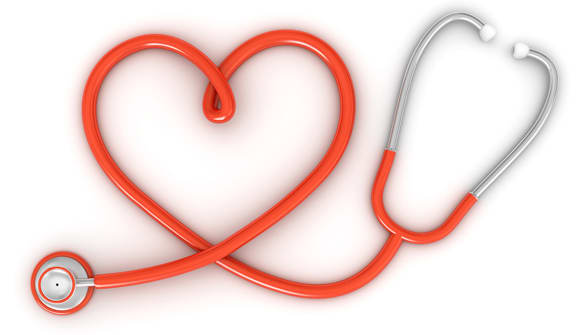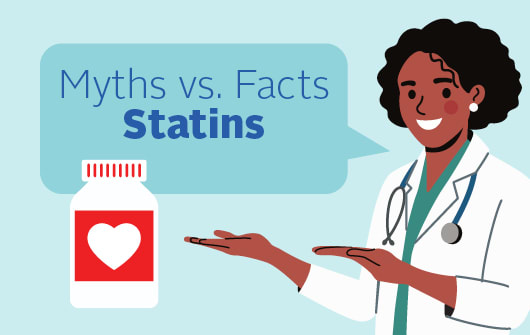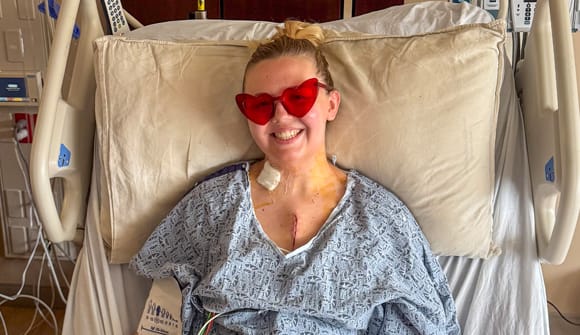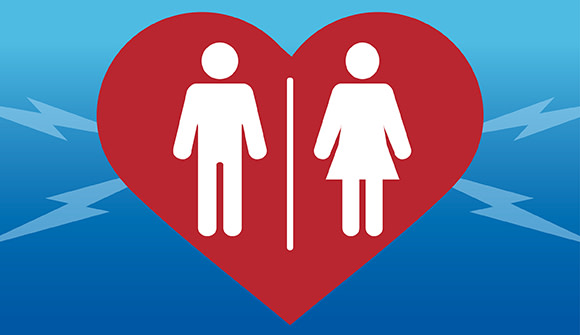Menopause and heart health
Early menopause increases risk of cardiovascular disease.
Article Date:

Heart disease remains the No. 1 killer of women, and menopause can quietly raise that risk. Understanding why this happens can help women protect their hearts for years to come.
Menopause is a stage of life that can bring an array of challenging symptoms and changes. The first that come to mind may be hot flashes, irritability and loss of periods, but research shows an increased risk of coronary heart disease is also on the list.
Why heart disease risk rises after early menopause
According to the American Heart Association, women who experience early-onset menopause (before the age of 40) are 40% more likely to develop a buildup of cholesterol plaque in the heart’s arteries than women who don't experience early menopause. The plaque can clog the arteries, leading to a heart attack.
While the risk is heightened for those who go through menopause at a younger age, postmenopausal women overall are at a higher risk of developing cardiac disease, according to Shreya Ghetiya, MD, a cardiologist with Baptist Heart Specialists.
Dr. Ghetiya explained why this concern comes after “the change” and how women can stay heart-healthy.
How estrogen protects the heart
During menopause, the body naturally produces less estrogen and progesterone. Estrogen supports many key functions, from reproductive and metabolic systems to the heart and blood vessels.
“Estrogen has a protective effect on cardiac health,” said Dr. Ghetiya.
It also helps regulate metabolism and improve insulin sensitivity, resulting in improved cholesterol levels. Lack of estrogen can lead to higher “bad” LDL cholesterol and lower “good” HDL cholesterol.
“This is the same reason why men tend to have higher cholesterol levels and why postmenopausal women are at a greater risk of serious cardiac events. If you have early menopause, then you have early estrogen deficiency,” Dr. Ghetiya explained.
Many women can naturally boost estrogen by staying physically active, maintaining a balanced diet rich in whole foods, and managing stress levels. For those with significant symptoms or hormone decline, menopause hormone therapy under the guidance of a physician can also help safely restore estrogen.
What causes early menopause?
Is it possible to prevent early-onset menopause? Probably not. According to Dr. Ghetiya, 70-80% of the time, it occurs without a cause.
“There are certain risk factors – inflammatory diseases and genetic disorders, viral infections that affect the ovaries, chemotherapy or other medications – that could suppress ovarian function,” she said. “Sometimes, it’s hereditary, but most often, it’s idiopathic [no known cause] and there’s no reason why one goes into menopause earlier than another.”
It’s important to note, however, that while a woman’s risk for heart disease increases after menopause, it doesn’t happen overnight.
“The longer you’re in menopause, your risk slowly grows,” Dr. Ghetiya said. “You’ll see subtle changes in your cholesterol panels over time, and it takes years to see any major clinical impact.”
Heart disease signs women should watch
Much like the signs of a heart attack, symptoms of coronary heart disease in women present in a range of ways. Fatigue from exercise or exertion, pressure in the chest or left arm and shoulder, or a change in energy levels may be signs of cardiac disease.
“Women tend to have more atypical presentations, so be mindful of any unusual symptoms and share these concerns with your primary care physician,” Dr. Ghetiya said. “They’ll direct you to a cardiologist for consultation, if needed.”
Tips to protect your heart health
Whether pre- or post-menopause, early or “on time,” Dr. Ghetiya recommended using this knowledge to prioritize cardiovascular health now and in the future.
Here are some of her suggestions for how to optimize heart health and prevent developing coronary heart disease:
- Complete 30 minutes of exercise or 10,000 steps each day.
- Maintain a healthy diet and weight.
- Manage blood pressure, cholesterol levels and diabetes (if applicable).
- Schedule annual exams with your primary care physician and OB/GYN.
“Focus on preventive health care and stay on top of your lipid panels and diabetes screenings,” Dr. Ghetiya said.
Protect your heart before, during and after menopause
Looking for a primary care physician or OB/GYN? Click here to find a provider near you or schedule an appointment online.
Source: American Heart Association



